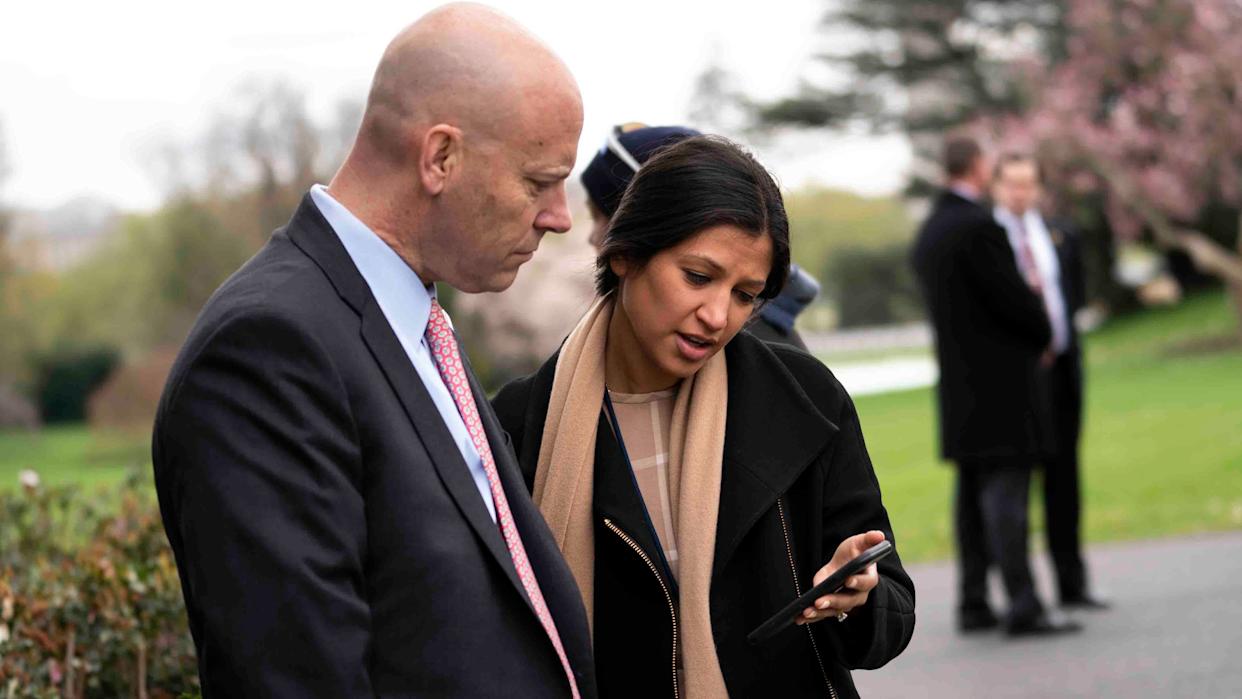Stephen Miller's Potential National Security Role: Strengths And Weaknesses

Table of Contents
Stephen Miller's Potential Strengths in a National Security Role
Policy Expertise and Understanding of the National Security Apparatus
Stephen Miller possesses a deep understanding of immigration policy, border security, and their intricate relationship with national security. His experience working within the executive branch provided him with insight into the workings of various government agencies involved in national security.
- Familiarity with relevant legislation: Miller has been directly involved in drafting and implementing immigration legislation, giving him a nuanced understanding of the legal framework governing national security matters related to border control.
- Experience working with security agencies: His tenure in the White House brought him into contact with various national security agencies, providing him with knowledge of their operational capabilities and limitations.
- Knowledge of foreign policy implications of immigration: Miller understands how immigration policies can impact international relations and national security, considering their effects on diplomacy and global partnerships.
Miller's strategic thinking, honed through years of policy development, is often cited as a strength. He demonstrates an ability to formulate complex policy solutions, even if their implementation has been met with criticism. However, it's crucial to acknowledge that the effectiveness and ethical implications of his approaches remain subjects of ongoing debate.
Determined and Assertive Approach to Policy Implementation
Miller is known for his forceful advocacy of his policies. This assertive style, while potentially leading to friction, can also be seen as a strength in the context of national security, where decisive action is often required.
- Effective policy implementation (where applicable): While controversial, some argue that his determined approach has led to the successful implementation of specific policies related to border security and immigration enforcement.
- Strategic advantage in negotiations: His assertive style might provide a strategic advantage during international negotiations on security matters.
However, this assertiveness also carries significant downsides. His approach has been criticized for alienating allies, escalating conflicts, and undermining diplomatic efforts crucial to long-term national security. The potential for unintended negative consequences necessitates careful consideration.
Stephen Miller's Potential Weaknesses in a National Security Role
Controversial Rhetoric and Divisive Policies
Miller's history of making inflammatory statements and advocating policies criticized as discriminatory or harmful poses a significant challenge to his suitability for a national security role.
- Impact on international relations: His rhetoric has been damaging to the U.S.'s image abroad, potentially undermining diplomatic efforts and harming national security interests.
- Erosion of national unity: His divisive policies have contributed to polarization within the U.S., weakening national cohesion – a key element of overall security.
- Specific examples: Specific instances of controversial statements and policies should be examined to assess their potential negative impact on national security. This includes analyzing their effects on domestic morale and international relations.
The potential for his rhetoric to further damage relationships with allies and embolden adversaries warrants careful consideration.
Lack of Traditional National Security Experience
Unlike many who have held national security positions, Miller lacks experience in the military or intelligence communities. This absence raises concerns about his understanding of the complexities of national security operations.
- Comparison with other appointees: His background should be compared with those of individuals who previously held similar positions to assess the significance of this gap in experience.
- Policy expertise vs. operational experience: While his policy expertise is undeniable, the question remains whether it can adequately compensate for the lack of traditional national security experience.
This lack of experience might hinder his ability to effectively manage crises and make informed decisions in high-pressure situations.
Potential for Ethical Concerns and Accountability Issues
Accusations and controversies related to ethics or potential abuses of power must be carefully examined. In a high-stakes national security role, accountability and transparency are paramount.
- Consequences of ethical lapses: Ethical lapses can severely damage national security, eroding public trust and undermining the credibility of the government.
- Importance of robust oversight: Mechanisms for oversight and accountability are essential to mitigate the risk of ethical violations in national security decision-making.
Conclusion
Assessing Stephen Miller's suitability for a national security role necessitates a balanced consideration of his strengths and weaknesses. While he possesses policy expertise and a determined approach to implementation, his controversial rhetoric, lack of traditional national security experience, and potential ethical concerns raise significant questions. This analysis highlights the complexities involved and underscores the need for a thorough evaluation of his qualifications. Ultimately, the question of Stephen Miller's suitability for a national security role requires careful consideration of all these factors, prompting further discussion and analysis of his potential impact. Share your thoughts and opinions on Stephen Miller's qualifications for a national security role in the comments below.

Featured Posts
-
 Spring Breakout 2025 Rosters Who Made The Cut
May 18, 2025
Spring Breakout 2025 Rosters Who Made The Cut
May 18, 2025 -
 Long Term Effects Of Toxic Chemicals Following Ohio Train Derailment
May 18, 2025
Long Term Effects Of Toxic Chemicals Following Ohio Train Derailment
May 18, 2025 -
 Shopify Vip Vip
May 18, 2025
Shopify Vip Vip
May 18, 2025 -
 Fortnites I Os Unavailability Reasons And Potential Return
May 18, 2025
Fortnites I Os Unavailability Reasons And Potential Return
May 18, 2025 -
 Bowen Yangs Alejandro Tattoo Gets Lady Gagas Honest Opinion
May 18, 2025
Bowen Yangs Alejandro Tattoo Gets Lady Gagas Honest Opinion
May 18, 2025
